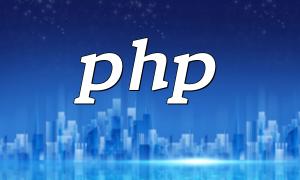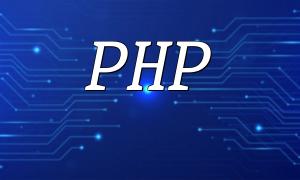With continuous technological advancements, PHP frameworks remain significant in web development. Popular frameworks like Laravel, Symfony, and CodeIgniter provide developers with comprehensive tools and ecosystems that greatly simplify development workflows. These frameworks feature efficient routing mechanisms, convenient database handling with ORM support, extensive middleware extensibility, and robust security measures to build stable and efficient applications.
As distributed systems and microservices architectures become widespread, PHP needs to collaborate effectively with other languages such as Python, Java, and JavaScript to meet complex business requirements. Mastering effective communication across different technology stacks is a vital skill for modern developers.
RESTful APIs provide a simple and standardized way to exchange data across languages. In PHP frameworks, developers can easily create API endpoints accessible by other languages. Here's an example of defining an API endpoint in the Laravel framework:
Route::get('/api/data', function () {
return response()->json(['message' => 'Hello from PHP!']);
});Other languages such as JavaScript and Python can call this API via HTTP requests to retrieve and process data, enabling cross-language collaboration.
Message queues like RabbitMQ and Kafka support asynchronous communication between different languages, suitable for building efficient and decoupled microservices systems. PHP can send messages to the queue, which other services consume and process, improving responsiveness and scalability. Example code is as follows:
use PhpAmqpLib\Connection\AMQPStreamConnection;
use PhpAmqpLib\Message\AMQPMessage;
$connection = new AMQPStreamConnection('host', port, 'user', 'password');
$channel = $connection->channel();
$channel->queue_declare('task_queue', false, true, false, false);
$data = "Hello World!";
$msg = new AMQPMessage($data, ['delivery_mode' => AMQPMessage::DELIVERY_MODE_PERSISTENT]);
$channel->basic_publish($msg, '', 'task_queue');In practice, PHP often works alongside languages like Python, leveraging each language's strengths to accomplish various tasks. For example, Python excels at data analysis and processing, providing results to PHP through service interfaces.
The following example shows how to create a simple data processing service using Python’s Flask framework:
from flask import Flask, jsonify
app = Flask(__name__)
@app.route('/process', methods=['GET'])
def process():
result = {"data": "Processed data from Python"}
return jsonify(result)
if __name__ == '__main__':
app.run(port=5000)The PHP side then retrieves the processed data by making an HTTP request to the Python service:
$response = file_get_contents('http://localhost:5000/process');
$data = json_decode($response, true);
echo $data['data'];Cross-language interoperability between PHP frameworks and other programming languages is increasingly important in modern software development. By leveraging RESTful APIs and message queues, developers can achieve effective collaboration across multiple languages, enhancing system flexibility and scalability. Mastering these techniques enables the creation of more competitive and adaptable applications that meet complex business demands.










